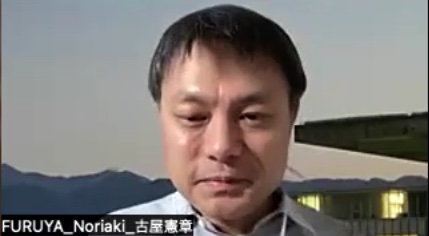Access the translation booklet here
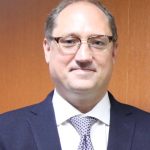 Gordon Myskow ゴードン・ミスコウ
Gordon Myskow ゴードン・ミスコウ
Congratulatory speech by Gordon Myskow (PhD), Associate Professor, Kanda University of International Studies, Director of the Masters TESOL Program. https://www.researchgate.net/profile/Gordon_Myskow
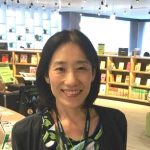 宝来華代子 HORAI Kayoko
宝来華代子 HORAI Kayoko
View video: In Japanese | In English
崇城大学総合教育センター教授。Sojo International Learning Centerで教員兼ラーニングアドバイザーを務める。熊本大学大学院社会文化学研究科博士課程修了。文学博士。大学教育における学習者の自律の促進、自律学修センターの役割や学習アドバイジングに関心を持つ。
Kayoko Horai is a professor at the Sojo International Learning Center, Sojo University, where she serves both as a teacher and an advisor. Her research focuses on English education and learner autonomy, with a particular interest in enhancing learner autonomy and providing effective learning support.
Abstract: Utilizing advising skills in my context
2022年3月にアドバイザー養成プログラムコースを修了しました。このコースでは、他の受講生と共にアドバイジングの理論や実践について深く学びました。学んだ理論やスキルを自分の教育現場でどのように活用するかについて、具体的な試行錯誤を重ねてきました。今回のスピーチでは、私の教育現場での具体的な実践事例を紹介し、皆さんの今後の活動に役立つヒントを提供したいと思います。
I completed the Learning Advisor Education Course here in RILAE in March 2022. During this course, I learned various aspects of advising alongside other participants. I have been experimenting with how to apply the theories and skills learned in my own educational setting. In this speech, I will share practical examples from my educational context, with the hope of providing useful insights for your future endeavors.
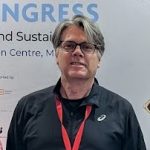 Paul Moore ポール・ムーア
Paul Moore ポール・ムーア
Paul Moore is a Senior Lecturer in the postgraduate Applied Linguistics program at The University of Queensland’s School of Languages and Cultures, specialising in Language & Technology and Sociocultural Theory. He has held positions on the executive board of the Applied Linguistics Association of Australia, and the editorial board of Language Learning and Technology. His research interests include a sociocultural perspective on task-based interaction in classroom and online contexts, intercultural communication, and the dynamic roles of the L1 in L2 interaction.
クイーンズランド大学「言語文化学部」附属の応用言語学大学院において上級講師を務め、言語とテクノロジーおよび社会文化理論を専門としている。これまで、オーストラリア応用言語学会の理事や『Language Learning and Technology』誌の編集委員などの要職を歴任してきた。研究分野は、教室内およびオンラインにおけるタスクに基づく相互作用の社会文化的視点、異文化間コミュニケーション、ならびにL2相互作用におけるL1の動的な役割など。
Abstract: Ecological principles for integrating technologies in language education
講演概要: 言語教育におけるテクノロジー統合のための生態学的原則
Formal training represents a moment in time in the development of language professionals as they prepare to enter the language teaching profession in various roles and contexts. The field seems to be undergoing constant change in order to “catch up” with the political, ideological, sociocultural, and technological developments in our increasingly interconnected world. Nowhere is this more pronounced than the incorporation of technologies. In this talk I draw on an ecological framework to explore how teachers and advisers can go beyond their current contexts and circumstances to develop a critical, reflexive, and sustainable approach to incorporating technologies into their teaching and learning.
正式なトレーニングは、言語専門家が様々な役割や文脈で言語教育の現場に参入するための準備過程のひとつの局面に過ぎない。しかし、この分野は、ますます相互接続が進む世界における政治的、イデオロギー的、社会文化的、さらには技術的な発展に対応すべく、絶え間ない変化を遂げている。その中でも、特にテクノロジーの導入においてはこの変化が顕著である。本講演では、生態学的枠組みを用い、教員やアドバイザーが現状の文脈や状況を超えて、批判的で反省的かつ持続可能な方法でテクノロジーを教育や学習に取り入れるためのあり方を探求する。
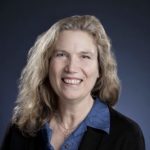 Stacey Vye ステイシー・ヴァイ
Stacey Vye ステイシー・ヴァイ
Stacey Vye (EdD) is a professor, academic writing and English Resource Center (ERC) coordinator, a space for group advising at Saitama University in Japan. Her research interests are learner and teacher autonomy, reflection, transformational advising, and positive organizational change. Stacey earned the RILAE’s Certificate for Learning Advisor Education in March 2022 and the Certificate for Advisor Educators in March 2023.
ステイシー・ヴァイ(EdD)は、埼玉大学で教授を務め、アカデミックライティングおよびEnglish Resource Center (ERC)のコーディネーターとして、グループアドバイジングの場を提供。主な研究分野は、学習者および教師の自律性、リフレクション、意識改革アドバイジング、ポジティブな組織変革などである。2022年3月にRILAEの「Certificate for Learning Advisor Education」を、2023年3月に「Certificate for Advisor Educators」を取得。
Abstract: Treasured colleagues’ and friends’ interwoven reflections for advisors and teachers that support learner wellbeing
In this short graduation symposium talk, I will share the work of treasured colleagues’ and friends’ interconnected reflections utilized to empower learners’ identities and wellbeing during advising sessions or in classrooms. These advising techniques are Naoko Aoki’s (2013; 2019) can-do statements for advisors, Satoko Kato and Jo Mynard’s (2016) reflective dialogues for advising (2016), and Scott Shelton-Strong and Giovanna Tassinari’s (2022) learner’s psychological needs in advising. These authors provide three lovely interwoven strategies that I term empathy and utilizing imagination, a willingness to focus on the learner, and addressing the issue with appropriate degrees of directiveness.
この卒業シンポジウムの発表では、アドバイジングセッションや教室内で学習者のアイデンティティやウェルビーイングを強化するため活用されている、同僚や友人たちの互いに影響を与えあうリフレクションの実践を紹介します。これらのアドバイジングのテクニックとは、青木直子(2013; 2019)のアドバイザー向け「Can-do」ステートメント、Satoko Kato & Jo Mynard(2016)のアドバイジングにおけるリフレクティブ・ダイアローグ、そしてScott Shelton-Strong & Giovanna Tassinari(2022)のアドバイジングにおける学習者の心理的ニーズです。これらの著者たちは、私が「共感と想像力の活用」、「学習者への積極的な関心」、そして「適切な程度の指導」と呼ぶ3つの相互に関係する手法を提供しています。
Short speeches by representative graduates
Furuya Noriaki Click for audio
Eduardo Vila [video]

